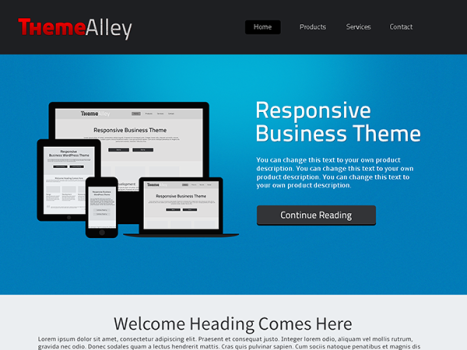Many successful bricks-and-mortar business owners, on buying a domain, go into the experience with high hopes. Floods of traffic! Huge revenues! Automated fun!. These days, businesses are often required to use highly responsive websites; a text blurb and an email link no longer count as a true website. Business owners can mop up extra gravy online, but not if their website is a big
belly flop.
WordPress is the ultimate expression of online flexibility. While looked down on by some as Drupal’s in
1. Ecommerce Plugins
If business isn’t ultimately about generating money, what is it? WP’s broad array of eCommerce plugins, including WooCommerce, MarketPress, and ColorShop set up virtual storefronts within your site. Business owners can lead online shoppers directly to their shops, or establish trust and connection on other pages.

Remember, though, many times it isn’t so much quantity of traffic as quality of traffic. Whatever’s trending on Google+ today may currently be one of the most searchable terms on earth, but will the person who visits your post for a gleaning of information on the subject be willing to drop everything and buy something from you? Perhaps, but if you use keywords relevant to your post, your chances of conversion head north of 10, 25, maybe even 50%.
Customer retention and conversion tools — newsletters, social media account links, lead generation and list building — all are on WordPress. Aweber and MailChimp, 3rd (and 4th) party social media widgets and plugins, and other niche indie add-ons all help the dedicated marketer achieve a longer and stronger reach.
2. WordPress SEO Tools
All In One SEO and Yoast have given a strong boost to WordPress SEO. When you want to boost your local following, or you need to focus on an industry-specific keyword, WP’s SEO tools are about as quick as you can have. All in One SEO, my personal favorite, exposes the Meta fields you need to add keywords, search titles, and search descriptions.
3. Content Structuring & Taxonomy
Drupal isn’t the only player in the taxonomy game. While the Drop is king of complex organization, the platform’s learning curve as a DIY system may be forbidding to some. With WP, there are multiple solutions for your organizational problems, like List By Post, which automatically organizes posts on a page according to category. WP’s built-in custom taxonomy system also lets you organize your site the way you like.
4. WordPress Invoicing
While you’re busy building your website, you don’t really need to dig out your invoicing software. As your other plugins bring in money and business, either they can do the invoicing themselves, or you can use plugins dedicated entirely to invoicing.
5. Event Scheduling Plugins
It’s possible to use sticky notes to orchestrate all the goings-on in your company. However, if you’d like to see how many people are coming, inform your clientele 24-7 of upcoming events, filter and classify them by host, date, and many other searchable options, WP has a pair of excellent plugins, Calendar and My Calendar.
http://wordpress.org/plugins/calendar/
http://wordpress.org/plugins/my-calendar/
And, oh yes,
6. Blogging
Take away the high-tech interaction and your blog is still a form of word of mouth advertising. With support plugins for Technorati, Facebook, Twitter, Google Authorship, and pinging services (http://wordpress.org/plugins/wordpress-ping-optimizer/), your WordPress blog is optimized to get you the one thing you can’t get enough of – attention.
Are you a business owner who would like to take advantage of the strengths of WordPress? CommonPlaces can build a WordPress website to the specifications you need.



